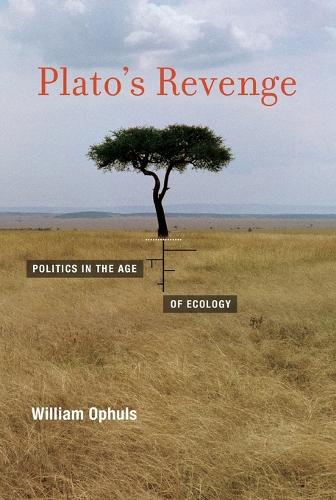
Plato's Revenge: Politics in the Age of Ecology
(Paperback)
Publishing Details
Plato's Revenge: Politics in the Age of Ecology
By (Author) William Ophuls
MIT Press Ltd
MIT Press
13th September 2013
United States
Classifications
Professional and Scholarly
Non Fiction
Social and political philosophy
Environmental policy and protocols
363.7
Physical Properties
Paperback
272
Width 137mm, Height 203mm, Spine 16mm
295g
Description
A provocative essay that imagines a truly ecological future based on political transformation rather than the superficialities of "sustainability." In this provocative call for a new ecological politics, William Ophuls starts from a radical premise- "sustainability" is impossible. We are on an industrial Titanic, fueled by rapidly depleting stocks of fossil hydrocarbons. Making the deck chairs from recyclable materials and feeding the boilers with biofuels is futile. In the end, the ship is doomed by the laws of thermodynamics and by the implacable biological and geological limits that are already beginning to pinch. Ophuls warns us that we are headed for a postindustrial future that, however technologically sophisticated, will resemble the preindustrial past in many important respects. With Plato's Revenge, Ophuls, author of Ecology and the Politics of Scarcity, envisions political and social transformations that will lead to a new natural-law politics based on the realities of ecology, physics, and psychology. In a discussion that ranges widely-from ecology to quantum physics to Jungian psychology to Eastern religion to Western political philosophy-Ophuls argues for an essentially Platonic politics of consciousness dedicated to inner cultivation rather than outward expansion and the pursuit of perpetual growth. We would then achieve a way of life that is materially and institutionally simple but culturally and spiritually rich, one in which humanity flourishes in harmony with nature.
Reviews
I would strongly recommend Plato's Revenge as a clear and compelling polemic that deserves to be read alongside Bateson's 1972 work Steps to an Ecology of Mind: Collected Essays in Anthropology, Psychiatry, Evolution and Epistemology...and yes, alongside Plumwood's Feminism and the Mastery of Nature. Beyond the debate about Plato, all three have something important to say about the fate of our planet.
* Times Higher Education *It should be mandatory reading for everyone with any influence and is a delight to read even though its drift is hardly comforting. It is a devastating critique of modern Western thinking so good that I thought there was no point in my writing another word, since it says it all.
* Resurgence & Ecologist *Author Bio
William Ophuls is the author of the award-winning Ecology and the Politics of Scarcity and Requiem for Modern Politics.
